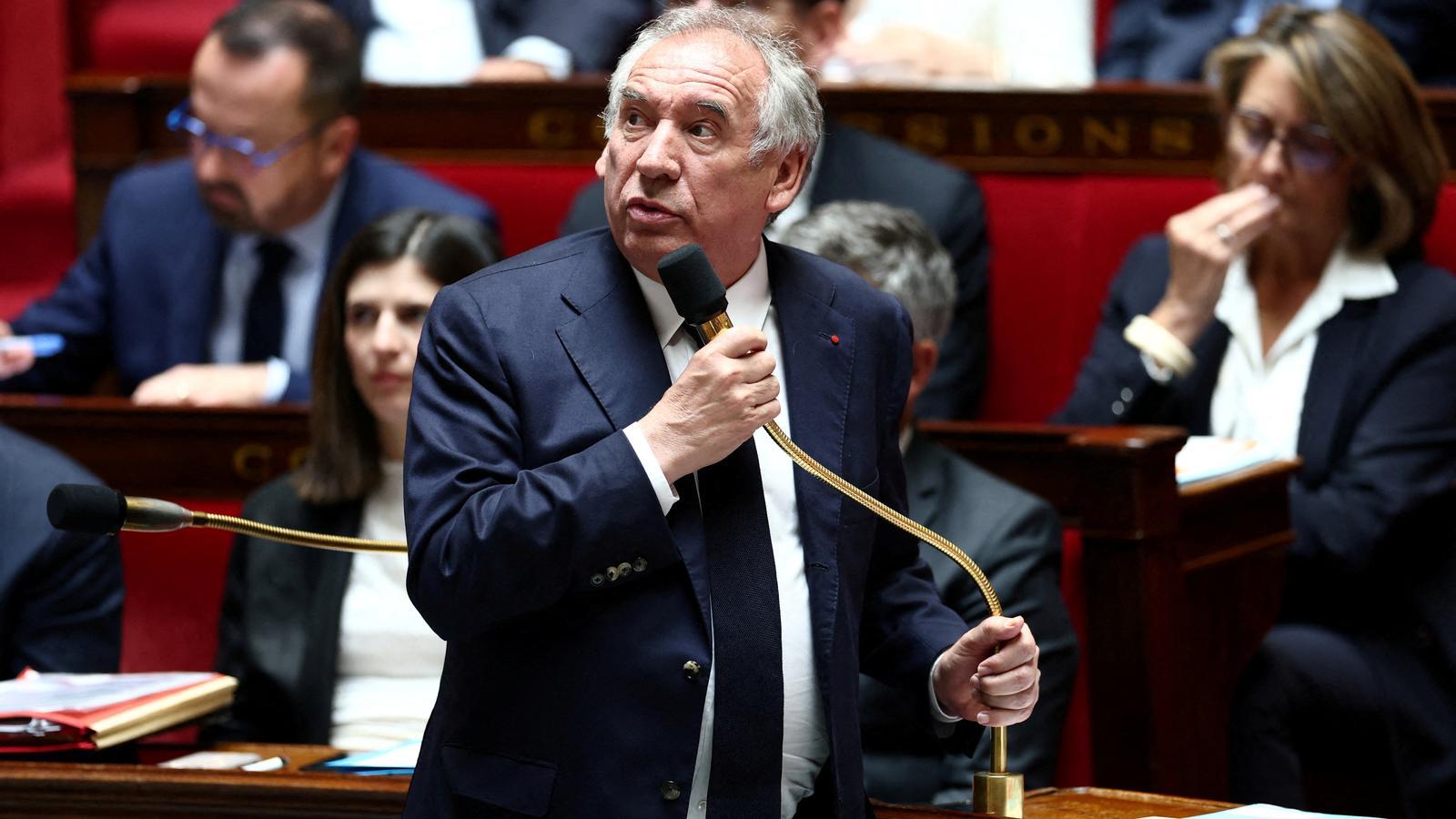An ungovernable country: France will once again be left without a prime minister.
Bayrou faces a vote of confidence in the Assembly on Monday, which he is likely to lose.


Paris"Who will be able to govern an ungovernable country tomorrow?" asked the newspaper's editorialist. The Depêche, Jean-Claude Souléry, just days after French Prime Minister François Bayrou unexpectedly announced, at the end of August, that he would submit to a vote of confidence in the National Assembly on September 8. Barring a major upset—highly unlikely—France will be left without a government or prime minister this Monday once again.
Bayrou will not have been in office even nine months. His predecessor, Michel Barnier, lasted only three, while the previous prime minister, Gabriel Attal, didn't even make it nine months. The country will have had five prime ministers since 2022, a figure that illustrates the difficulty of governing with an Assembly without clear majorities. With the foreseeable fall of François Bayrou, the French political crisis deepens even further in the face of the impotence of President Emmanuel Macron. The situation of ungovernability is unprecedented in the Fifth Republic, and some parties are already openly calling for the president's resignation.
Suicidal Decision
Bayrou, a center-right politician, had given no hint of the suicidal decision he would ultimately make. On August 10, he presented his draft budget for 2026, which he was to negotiate with the parliamentary groups starting in September. But, without waiting for talks that seemed more than complicated, three weeks later he announced that he would submit to a vote of confidence, knowing from the outset that he had lost the vote.
Marine Le Pen's left-wing and far-right parties have announced for days that they will vote against it, and their votes are enough to bring down Bayrou and his government, made up of Macronists and center- and right-wing forces. The prime minister's chances of surviving are slim.
Indebted Economy
Why did he make this decision? As he explained, it was because France is experiencing "a worrying moment that requires clarification" regarding the parties' commitment to passing a budget aimed at shoring up a heavily indebted economy. "The debt burden will become the largest item in the nation's budget this year," he warned. In short, he appealed to the political parties' responsibility to prevent the budget from derailing.
The argument, however, has not convinced the opposition parties, who interpret it as a disguised resignation. Both the left and the far right had threatened Bayrou with a vote of no confidence if he did not reverse some of the budget proposals, such as the elimination of two public holidays for all workers. Faced with the threat of a vote of no confidence, the prime minister could have decided to save himself the ordeal of negotiations and bid an early exit. Other theories suggest it could be a maneuver to leave the government in preparation for his candidacy in the 2027 presidential elections.
The irony is that Bayrou, when he was appointed, chose not to submit to a vote of confidence in the Assembly. Prime ministers are not required by law to do so, but it is customary for them to submit to such a vote when they present the government's priorities in the general policy statement. Bayrou avoided it then because he had a high chance of losing.
Ungovernability
To understand the current crisis of governability, we must go back to 2022. That year, in the legislative elections, Emmanuel Macron lost his absolute majority and his difficulties in governing began. Without a parliamentary majority, the executive branch depended on the support of other forces to pass any law. Two years later, in 2024, Macron unexpectedly decided—following Le Pen's historic victory in the European elections—to dissolve the Assembly and call early elections.
The result was a parliament as fragmented as ever, with no political group or bloc holding a clear majority, in a country unused to pacts. Since then, Macron has been appointing prime ministers from different parties. But without a majority in the Assembly, none have succeeded. Governance has been almost impossible, and Bayrou's failure is further proof of this.
In France, everyone assumes that the prime minister will lose the vote this Monday. Even Macron, who has already begun discreet consultations to find a replacement for Bayrou, has begun. But who, given the current situation, will be able to govern an ungovernable country? According to leaked information in the French press, Macron could finally give a chance to a Socialist prime minister. The question is whether he would have a chance of avoiding censure and passing the budget.
In fact, the first secretary of the Socialist Party, Olivier Faure, expressed his willingness to become the new prime minister if Macron appoints him, as he stated this Sunday in an interview on France 3. He did not clarify, however, with which forces he will govern. He simply stated that his government will be solely left-wing, that he has assumed it will not have a parliamentary majority, and that it will have to negotiate proposal by proposal. The main problem is that the left-wing party with the largest representation in the National Assembly, France Insoumise, has already made it clear that it will not support such a government. Its leader, Jean-Luc Mélenchon, actually wants Macron to leave.
For her part, far-right leader Marine Le Pen once again called for early legislative elections this Sunday, saying that "France is in the throes of democratic suffocation."
